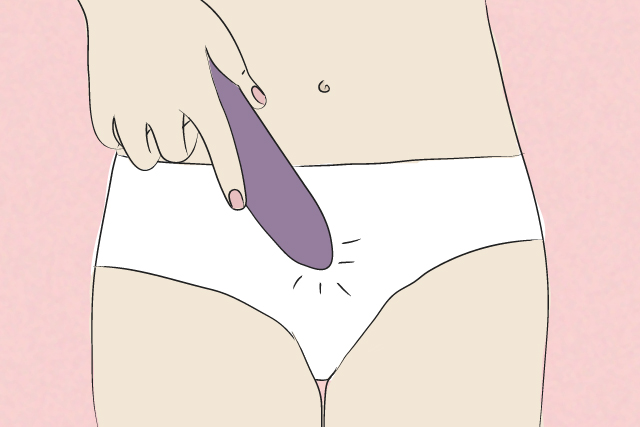This column may contain strong language, sexual content, adult humor, and other themes that may not be suitable for minors. Parental guidance is strongly advised.
One of the most enduring—and unjust—tropes about women is their essential shallowness. For centuries, men were held up as the intellectuals, the athletes, the achievers, the masters. They discussed politics and world affairs, ran governments, made scientific discoveries, wrote philosophical treatises and great literature. Women, on the other hand, were creatures of lesser substance, relegated to what was considered the less important work of birthing babies, raising children, cooking meals, running homes. Men were rational, serious and deep; women were crazy, emotional, and hysterical.
In fact, there was a term for a mental health condition that appeared to afflict only women: hysteria. It was, according to Rachel Maine, author of the historical work The Technology of the Orgasm, “a once-common medical diagnosis, exclusively in women, considered to be suffering from a wide array of symptoms including sexual desire and the nebulous ‘tendency to cause trouble.’” Symptoms also included erotic thoughts and excessive vaginal lubrication.
Funny how men’s sexual desires and fantasies were always regarded as legitimate and excusable, whereas women who expressed sexual desire were regarded with suspicion and thought to be mentally ill.
The treatment for hysteria, incidentally, was “pelvic massage,” practiced since the Renaissance, which included manual stimulation on the part of the doctor of a woman’s genitals until a “hysterical paroxysm” was experienced by the patient. In other words, medical masturbation induced an orgasm that allowed the symptoms of hysteria to subside. For the time being.
Again, it’s funny how men have wanked themselves silly all throughout history (despite periods wherein they were warned that doing so would lead to blindness or an assured berth in hell come the afterlife) and once more it was considered legitimate and excusable, whereas women had to subject themselves to unenthusiastic doctors wanking them to cure them of their madness.
Believe it or not, most doctors were distinctly unhappy about this aspect of their vocation, even if the treatment they administered was a veritable cash cow during the Victorian era. As Psychology Today reports, “By the early 19th century, physician-assisted paroxysm was firmly entrenched in Europe and the U.S. and proved a financial godsend for many doctors.”
And yet many complained that their hands or fingers were fatigued, which eventually led, to the invention of the vibrator, marketed as an “electromechanical medical instrument,” writes Maine, designed to provide more efficient physical therapy to women believed to be suffering from hysteria. “Doctors sought every opportunity to substitute other devices for their fingers.”
Which is not to say that women did not enjoy their medically sanctioned moments of masturbatory pleasure at the hands of a doctor at that. Certainly there were women who did, and the “hysterical paroxysms” they experienced would have relieved stress, anxiety and “nervousness,” to varying degrees, because, as we all have hopefully experienced, an orgasm is capable of bringing release and inducing a state of bliss through the release of endorphins, as well as oxytocin.
Often called the “cuddle hormone” or the “love hormone,” oxytocin, according to Alice of Columbia University’s popular Go Ask Alice column, “is naturally produced in the hypothalamus and released from the pituitary gland during hugging, touching, and orgasm. In fact, human blood concentrations of oxytocin have been reported to be higher amongst people who claim to be falling in love.”
But even during sessions of self-love oxytocin is present, as levels peak “during an orgasm, whether with a partner or during masturbation. It is also theorized that oxytocin affects generosity through increased empathy, reduced addiction to drugs and eases withdrawal symptoms, and contributes to learning and memory functions.”
Is it any wonder then that after a “pelvic massage” doctors deemed their patients cured (until the next episode of “hysteria,” and patients left doctors’ clinics feeling rather relieved, relaxed and balanced? It’s a shame, however, that women were conditioned to distrust their sexual urges and regard them as unnatural and shameful, not to mention further proof of their mental instability. But at least they were encouraged, some perhaps even forcefully compelled, to seek treatment for their hysteria.
Ironically enough, vibrators, having long evolved from the clunky and rather dangerous contraptions of the Victorian age—there was even an American model called The Manipulator, steam-powered and coal-fired at that—have since become a symbol of female sexual emancipation, a device designed purely for sexual pleasure, notwithstanding the fact that some of its iterations, such as Hitachi’s famous Magic Wand, are marketed as massage devices.
But then again, women have throughout history been undervalued and underestimated. Shallow, petty and prone to crazy? Perhaps, but they’re less likely to pick up an assault rifle and spray gunfire at a classroom full of children.
And they continue to power retail. Whether it’s books, clothes, cosmetics or cleaning products, women define purchasing trends and product innovations. In fact, department stores exist because of women. A recent piece in Racked illustrates how department stores were created to resemble fantasy palaces where women ruled, because prior to that, women of good standing were relegated to the home and it was a scandal to be seen outside in the streets unaccompanied by a male, preferably a spouse or relative.
Macy’s, Harrod’s, Selfridges… “Not only did these palaces get women outside the house, but they also employed them. Crisp-bloused, young white women made up the majority of the staff, mainly because the men in three-piece suits no longer fit into how women shopped. Many shoppers came in for no other reason than for the fun of being tempted—they wanted to play and dream, and needed someone who understood the language. Because of that, these stores became, in the words of Boston department store owner Edward Filene, an ‘Adam-less Eden.’”
Which sex with a vibrator can sometimes feel like.
Wiser is the author of Making Love in Spanish, a novel published by Anvil Publishing and available in National Book Store and Powerbooks, as well as online. When not assuming her Sasha Fierce alter-ego, she takes on the role of serious journalist and media consultant.
For comments and questions, e-mail [email protected].
Disclaimer: The views expressed here are solely those of the author in her private capacity and do not in any way represent the views of Preen.ph, or any other entity of the Inquirer Group of Companies.
Art by Lara Intong
Follow Preen on Facebook, Instagram, Twitter, and Viber
Related stories:
Why Do Some Aid Workers Look at Sex with Locals as Privilege?
Mutual Attraction in the Time of Bad Dates and Encounters
How Do We Define Womanhood and Manhood These Days?
A Woman’s Virginity Does Not Define Her


